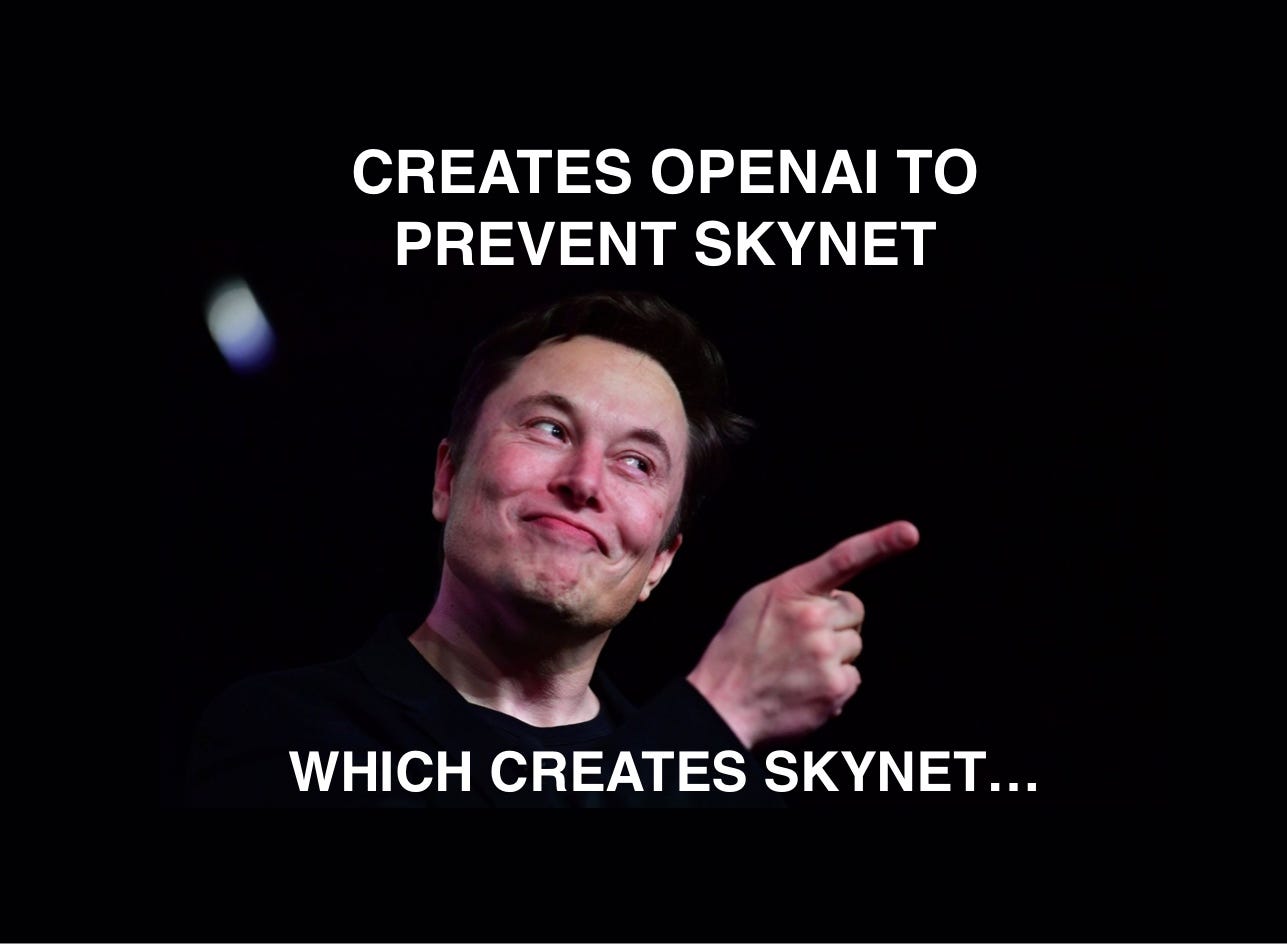🔮 Radically Curious - Issue #4
GPT-3 hype continues, Pentagon needs AI talent and Elon is concerned (again)
Happy Thursday!
Here comes a list of interesting things that happened in the world of Artificial Intelligence this week:
GPT-3 and the saga of ClosedAI continues…
You are not missing out on much in case you haven’t been on top of the news about GPT-3 hype: clickbait machine keeps producing and the industry is catching up to it as best as it can:

Meanwhile, here’s a great podcast on the topic with a long-time subscriber of this newsletter ever since it was just my personal AI newsletter - shout out to Frank Chen.
So who’s Frank Chen? Let’s go meta and have GPT-3 answer this one…

Aha, makes sense! 😅
Jokes aside, I will be honest with you, I’m very skeptical of the utility GPT-3 has to humanity, the more I play the more I get addicted to ask more questions and see what happens. The end results are fascinating though completely meaningless. Why? Because there is no purpose other than to entertain my curiosity. It’s basically a very good implementation of Infinite Monkey or millions of those jammed into a giant supercomputer. There is a very good chance GPT-3 can write an actual Bible, but what’s the point? General gibberish generator is as useless as people trying to interpret scandalous Finnegans Wake book that sounds like non-sense when you first attempt to read it (it does get better later on haha). Some people defaulted to it being a joke of typing up random words and some people, like nuclear scientists, tried to... find fractal structures in his writing!
The philosophical question is, how many people will waste time talking to GPTs in the future? How many people will try to find meaning in it? How many people will actually find that meaning and how many will follow the cult of creating a good version of SkyNet to feed hundreds of millions of dollars into statistically proven random number generators? #philosopher-hat-off
Pentagon is preparing for AI talent war ⚔️
The National Security Commission on Artificial Intelligence (NSCAI) — an independent advisory commission to the Department of Defense — recommended establishing the Digital Service Academy to operate like a military institution where students would learn about technology.
“The people are there, the talent is available,” said NSCAI Chair Eric Schmidt, a former CEO at Google. “This is a fitness problem.”
No comments here, but the next decade will be interesting. Especially given the new de-facto China-US cold war state and AI being the new “nuclear”.
Department of Concerns💈
Meanwhile, the DARPA is shaping up the foundation for the trustworthiness of AI-based systems in general, a must-have initiative given the current timing…
As DARPA nears its annual August release of new projects for the coming fiscal year, DoD’s cutting-edge research arm is looking to pump up efforts to improve the reliability, and trustworthiness, of AI-based systems.
And of course, it would be a shame not to mention Elon Musk in here, he’s very concerned, as usual.

“Just the nature of the AI that they’re building is one that crushes all humans at all games,” Musk told The New York Times in an interview published on Saturday. “I mean, it’s basically the plotline in ‘War Games.’”
Too bad, real life is more complex than playing StarCraft, or is it? 🤔
————————————————————————————————
Radically Curious Podcast #4
And as promised, each issue of my newsletter will be accompanied by an episode of my new podcast called “Radically Curious”.
Today we are chatting with Chris Mattmann, deputy chief technology officer at NASA JPL, responsible for AI division and everything data science when it comes to space exploration and missions beyond our blue planet.
He is a professor of computer science and a major contributor to open source software, serves as a Director at the Apache Foundation and actively contributing to multiple software projects including Hadoop and Tika, Solr and Lucene.
Don’t forget to like, subscribe and comment on the most interest parts of the conversation. Thank you and enjoy!
Summary:
01:10 - Introduction to Chris and his work at NASA JPL
02:45 - Bridging science, business, academia and governments
03:48 - Mars missions, rovers and preventing contamination of space with coronavirus
05:40 - Being risk-averse, limitations and radiation hardened chips, running deep learning locally in space
08:29 - Constraints of deep space when it comes to machine learning and radio communications
11:08 - $2.4 billion project and 7 minutes of terror
12:20 - Cost of error and balance between risk and benefit, end-to-end formulation of JPL
15:00 - NASA’s Team X and the challenges of rapid design of solutions for space missions
16:45 - Building data science solutions without data, solving for unique situations that were never observed before
18:35 - Inability to explain deep learning versus classical explainable models
19:45 - Neural networks are not the holy grail
20:00 - Explainable Artificial Intelligence initiative, WestWorld debug mode and lack of mainstream focus on explainability
22:30 - Lack of progress within causal inference, feature engineering and understanding the difference between dogs and cats
24:15 - Capturing and collecting data is expensive, the challenge of domain adaptation
27:45 - Cult of AGI (Artificial General Intelligence), GPT-3 hype, saving humanity from SkyNet
30:10 - Rise against the machines and the fallacy of retraining blue collar professionals to code
32:00 - AI hype, the fears of Elon Musk, closed-source AI solutions, fake news
37:35 - Data ethics and influencers behind the news, clickbait and funding driven hype
39:00 - Importance of curiosity and passion
42:30 - SkyNet and GPT-3 takes over Chris Mattmann…
#ArtificialIntelligence #GPT3 #deeplearning #datascience #XAI #openai
————————————————————————————————
Thank you and have an amazing week! 🎉
How’s the quality of the newsletter this week? Good, bad, the worst?
Please be honest, your feedback actually matters.


